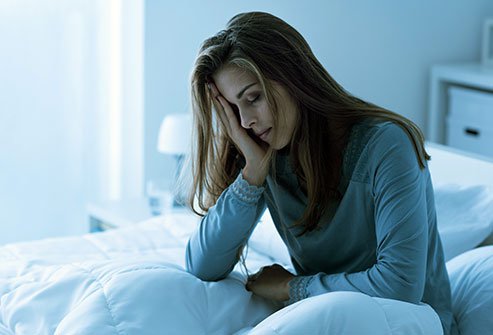고정 헤더 영역
상세 컨텐츠
본문

The nervous system is the most important function in our body, dominates the whole of our body. All of the signals from the body has conveyed to the brain through nerves. I will describe the general structure and function of the nervous system first and then share my experience of sleep disturbance in this assignment. As a premise, the nervous system is divided into two parts, the central nervous system(CNS) and the peripheral nervous system(PNS). The central nervous system is comprised of the brain and spinal cord. The peripheral nervous system connects the central nervous system to the rest of the body(Spielman et al., 2017).
I will describe the central nervous system first. The brain is a remarkably complex organ comprised of billions of interconnected neurons and glia, provides the foundation for our thoughts and behaviors(Spielman et al., 2017). And, the spinal cord is protected by bony vertebrae and cushioned in cerebrospinal fluid, connects the brain to the peripheral nervous system or sensory nerves and motor nerves, and so on. Not only that, "the top of the spinal cord is a bundle of nerves that merges with the brain stem, where the basic processes of life are controlled, such as breathing and digestion"(Spielman et al., 2017, p.102).
On the other hand, "The peripheral nervous system is made up of thick bundles of axons, called nerves, carrying messages back and forth between the CNS and the muscles, organs, and senses in the periphery of the body"(Spielman et al., 2017, p.100). There are two different elements in the peripheral nervous system, the somatic nervous system, and the autonomic nervous system. The somatic nervous system consists of motor neurons and sensory neurons, involved in the relay of sensory and motor information to and from the central nervous system(Spielman et al., 2017). The autonomic nervous system controls our internal organs and glands, prepares the body for stress-related activities, returns the body to routine, day-to day operations without our consciousness, and maintains the body’s state of equilibrium, such as body temperature(Spielman et al., 2017).

Why is the study of “sleep” important in a psychology course? Because sleeping habits easily influence our mental state. We "experience common mental health problems such as depression, anxiety, and stress along with poor sleep quality"(Zochil & Thorsteinsson, 2018, p.41). I will mention these details with my own experience later. What benefit does sleep provide to the nervous system and the body in general? Proper sleep brings recovery from fatigue, decreases stress, helps memory retention. In converse, when sleep is insufficient, one of the autonomic nerves, the sympathetic nerve, becomes dominant and secretes hormones such as adrenaline and noradrenaline for active behavior. It leads us to more severe sleep deprivation, the elevation of blood pressure, a sense of fatigue, poor concentration, and so on. Sufficient sleep protects us from these autonomic disorders.
Actually, I experienced sleep disturbances due to the pressure of work and study recently. I feel it influences me especially, my concentration and emotion. For example, I know that I became more careless after an all-night vigil. And also feel a lower motivation for every activity than when I had time to sleep much time and did not feel pressure from anything. It needs few days to recover when I burn out physically and psychologically, which is very inefficient. So I realized that it is important to be willing to spend time sleeping to perform more efficiently.
In conclusion, the sleeping state and nervous system, especially the autonomic nervous system, relate deeply. Proper sleep brings recovery from fatigue, decreases stress, protects us from autonomic disorders.
References
Spielman, R., Dumper, K., Jenkins, W., Lacombe, A., Lovett, M. & Perlmutter, M. (2017). Psychology. OpenStax College, Rice University. Retrieved from https://my.uopeople.edu/pluginfile.php/1097682/mod_page/content/7/PSYCTextCh_1-4.pdf
Zochil, M. L., & Thorsteinsson, E. B. (2018). Exploring poor sleep, mental health, and help‐seeking intention in university students. Australian journal of psychology, 70(1), 41-47. Retrieved from https://d1wqtxts1xzle7.cloudfront.net/58507006/Zochil_2018_Exploring_poor_sleep__mental_health__Published_version_.pdf?1551226532=&response-content-disposition=inline%3B+filename%3DExploring_poor_sleep_mental_health_and_h.pdf&Expires=1613075369&Signature=EoEK1QSE2QTuSpG3guTIMfZUz4jAOtnmEFxenfTKcKViyGsx0leKrC3zrbxDPn8qXmX8sR3BpbBLI4PbhPN-5-JIMV7ntRwxylGSRza830Scabyc2XR2Zb76z2f7MUQOJtQnRtNM50VfLE4cW5NXC1pYkSyN7e3GpebsK3FLNRLBf5S73et5YZTHEuJDuTe0Sj6cQeXo9akkV~yevSTQgZYqVR7tSH1uOyesrgTFY09Yd31wyHpH5si8~RVGYm3I~qNXxAe8SL9biXkmWOiADTI5dLQCtOh--UhV1umviTmwRZArxcSKbQyFDHycKN2Wd9XHtmVX~5WgKg6gZ3Xa6A__&Key-Pair-Id=APKAJLOHF5GGSLRBV4ZA
'Psychology > PSYC1504' 카테고리의 다른 글
| 3.1 ヒト遺伝学 - 遺伝子変異と遺伝子環境相関 (0) | 2021.07.06 |
|---|---|
| Sleeping Deprivation and Obesity (0) | 2021.07.03 |
| How Genetics and Epigenetics Affects Our Behavior (0) | 2021.07.02 |
| The Scientific Method in Psychology (0) | 2021.06.24 |
| Hippocampus and Empirical Method (0) | 2021.06.24 |




